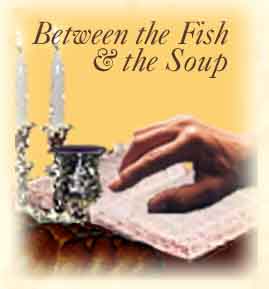

|
G-d spoke to Moses…Speak to Aaron and his sons: they must separate
themselves from the holy things of the Israelites which they sanctify for Me,
and they shall not profane My Holy Name; I am the Lord (22:1-2).
The interpretation of the text according to the Talmud is that whenever the Kohanim (Priests) become ritually unclean, they must withdraw from all aspects of the Temple service, less they contaminate and therefore disqualify the offering which the Israelites have brought. The penalty for those who serve whilst contaminated is death (22:9) by the Hand of the Almighty (Sanhedrin 83b). This text occurs in the middle of the earlier sections of this Parasha which deal with the laws of the Kohanim. These sections, in order, deal with: the restrictions of, and respects paid to ordinary Kohanim, and the Kohen Gadol; the prohibition of a Kohen with any physical defect serving in the Tabernacle and the Temple, the prohibition of a Kohen with an even temporary spiritual defect (ritual uncleanness) serving, and the disqualification of any animal with a physical defect as a sacrifice. The language of Divine communication seems harsh in the section under study – namely the forbidding of a Kohen who is ritually unclean to serve in the Temple. This may be derived from way that section is introduced: ‘G-d spoke to Moses… Speak to Aaron and his sons’, rather than the more usual expression: ‘Speak to Aaron and his sons saying’. There is a general rule that where, in a Divine instruction, the word daber (to speak) is not accompanied by some form of the word amar (to say), the communication is a harsh one (see Rashi on Shemot 6:2 and 32:7). The use of that style to convey such a mood occurs, for example, where G-d draws Moses’ attention to the Israelites’ worshipping the Golden Calf. Throughout Parashat Emor this is the only place where that harsh form of command is used. What was special about the laws of spiritual uncleanness which justified their being singled out for a severe form of Divine communication? In answering the question consider the following remark of the Sforno: Kohanim should not be so taken by the thoughts of their high position that they regard as profane that which the Israelites regard as sacred (Sforno on 22:2). This gives us an insight into the series of laws applying to the Kehuna (Priesthood). The Kohen, as a descendent of Aaron, is singled out as a person to be respected and honored (21:8) – for example in being the first to be called up to the Torah. In Temple times, only Kohanim were allowed to deal with the sacrifices after shechita, so that they would bring the desired atonement or other effect for the people who brought them. In addition, as listed in Numbers 18: 9-20, the Kohanim were supported by the mandatory terumot and other contributions from the community. In short they were a privileged, authoritative, and honored class. They were, and are, the aristocracy of Klal Yisrael. People in high positions have many chances to abuse their authority: to allow themselves liberties not permitted to ‘commoners’. In this case, the Kohanim’s familiarity with the holiness of the Beth Hamikdash (Temple) – totally off-limits to the other sections of Klal Yisrael - could reduce the respect that they would have for their holy duties, and for that matter the Beth Hamikdash in general. This ultimately would cause the neglect of the Torah-ordained standards of ritual purity required by the Kohanim for their Divine service. Therefore the commandment had to be communicated harshly. The Almighty, through Moses, was addressing human nature. The severe tone in effect was saying to the Kohanim: Beware – you are close to Me, and privileged by Me and My People. Under no circumstances abuse your status or your duties… This whole approach in fact addresses the wider issue of carelessness and corruption on the part of learned people and public figures towards other people. Torah standards in this area may be illustrated by the following story. The late Rav Rabinow ztl. a talmid muvhak of the Hafetz Hayim used to give a Chumash-Rashi shiur to unlearned Baalei Batim in his Beth Hamidrash in London, between Mincha and Aravit on Shabbat. He was observed meticulously going through the text before the Shiur. “R. Rabinow, don’t you know the text off by heart? Why do you need to go over it?” He answered: “Of course I know it. But the Baalei Batim have made a special effort to attend the shiur. I owe them the respect that I should go over it especially for them and not arrive unprepared…”
This article is provided as part of Shema Yisrael Torah Network For information on subscriptions, archives, and http://www.shemayisrael.co.il Jerusalem, Israel 972-2-641-8801 |